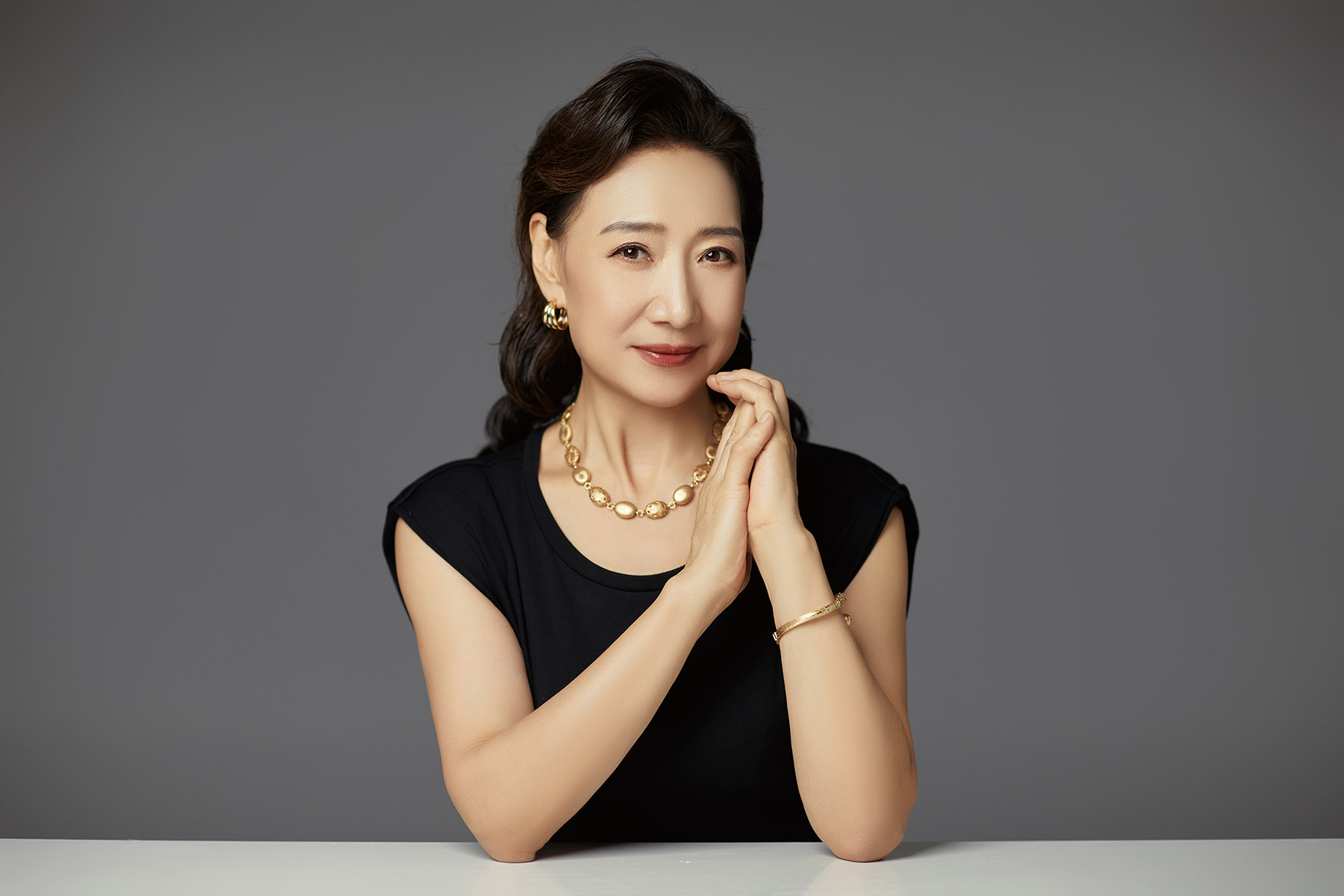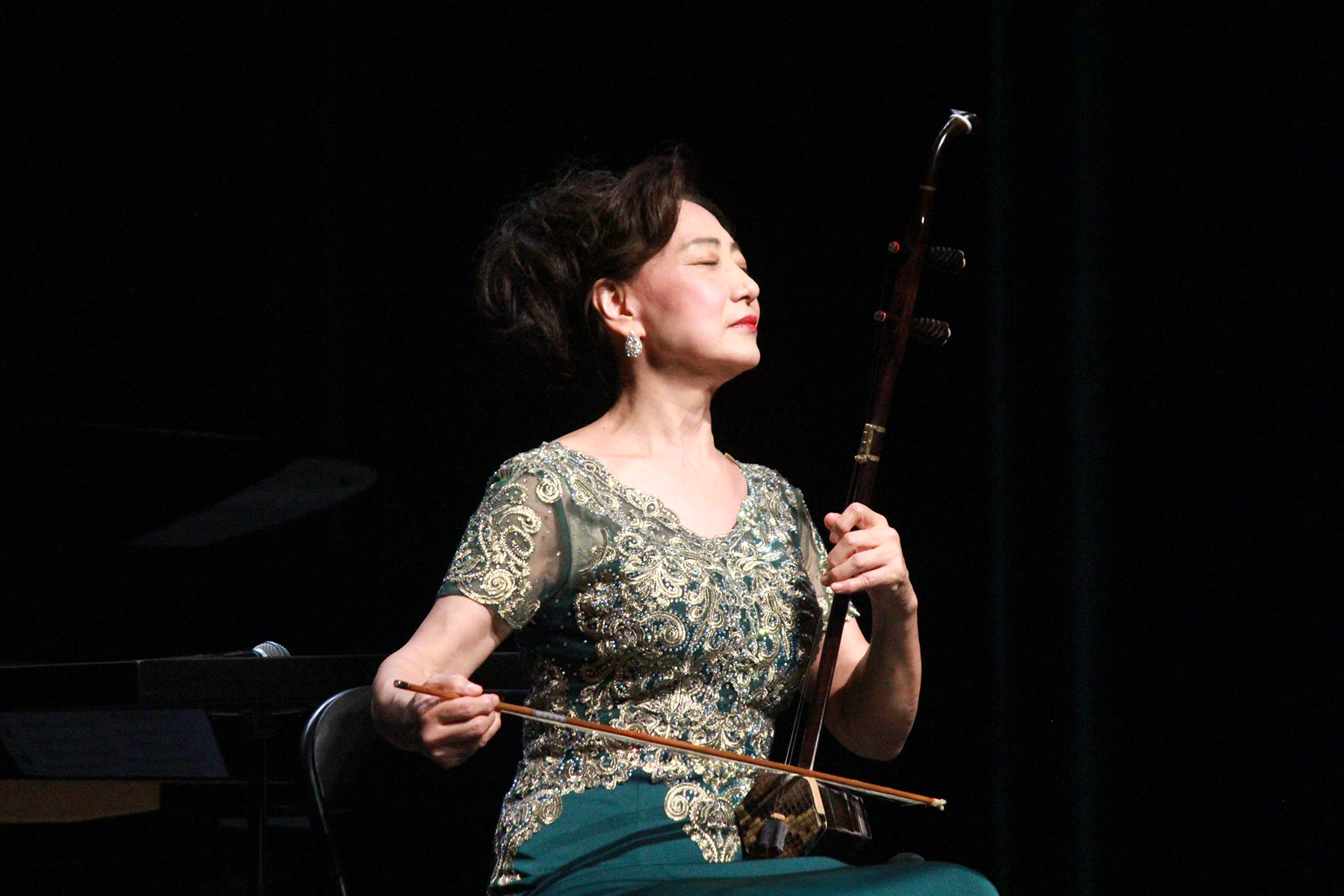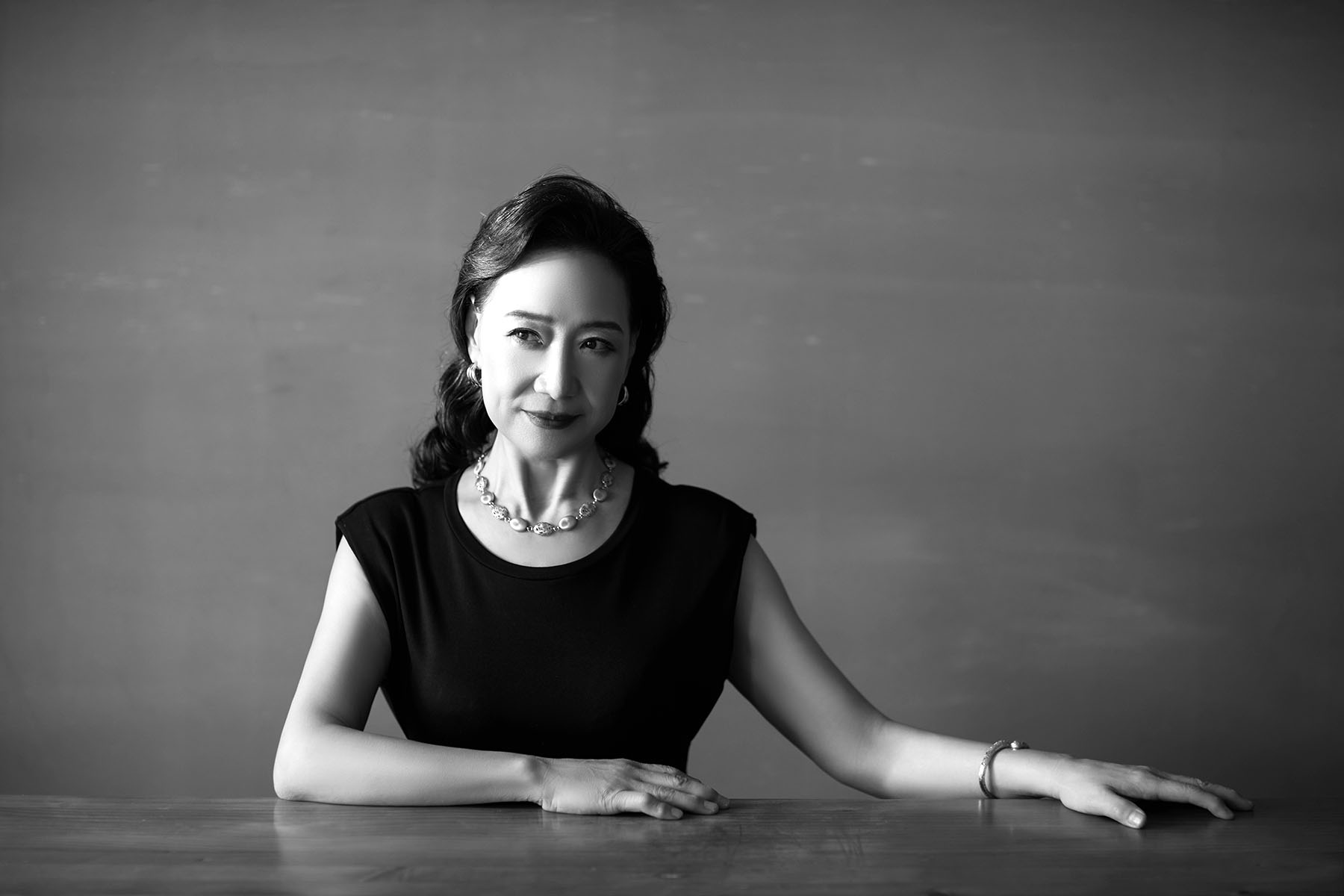In addition to popularizing the erhu, Jiang Jianhua has found ways to give the classical instrument a contemporary sound, Chen Nan reports.

What do you expect to hear and see when you attend a concert given by an erhu virtuoso?
"I want those with a general idea of the erhu to put aside their impressions, and I hope those who have never seen an erhu concert will get to know the instrument with a fresh eye," says Jiang Jianhua, an erhu player.
I want to offer the audience a fresh take on the erhu.
Jiang Jianhua, erhu virtuoso
In the world of traditional Chinese music, Jiang is a luminary, celebrated for her mastery of the traditional two-stringed bowed instrument, which is revered for its emotional sound and rich cultural heritage.
The erhu virtuoso will be in concert with pipa (a short-necked, four-stringed lute) player Yang Baoyuan, jazz pianist Huang Jianyi and cellist Mo Mo, on Friday at the National Centre for the Performing Arts in Beijing.
It will not be Jiang's first time playing chamber music. In 2021, she performed selections from operas, symphonies and chamber music with a string quartet at the NCPA.
READ MORE: Hometown instrumental in musician's compositions
"It's rare for a chamber music concert to feature an erhu, since it is usually played solo or in a big ensemble. I want to offer the audience a fresh take on the erhu and allow them to enjoy the traditional instrument as they never have before," says 63-year-old Jiang, who is a retired professor of the Central Conservatory of Music.
During the upcoming concert, she has adapted pieces including Blooming Flowers and Full Moon by composer and conductor Huang Yijun (1915-95), and Carmen Fantasie from French composer Bizet's opera, Carmen. She has also adapted a piece Japanese composer Ryuichi Sakamoto wrote for The Last Emperor, a Bernardo Bertolucci movie that won nine Academy Awards in 1988, including for its soundtrack.
For Jiang, the choice carries a deeper meaning.
"Unlike other music I have adapted for the erhu to demonstrate its versatility and way it can sound, I have adapted Sakamoto's piece to show my respect and express my condolences," says Jiang, referring to the composer's death last year at the age of 71.

Jiang met Sakamoto in a studio in Tokyo in 1987 when he invited her to perform on the soundtrack he had written for The Last Emperor.
"He was very polite and humble. He told us that he didn't know much about traditional Chinese instruments, but he needed them for the soundtrack. He had us play a few bars of the score, which he had not yet finished and showed great interest in our instruments. Then, he asked me to keep playing while he composed the score," says Jiang, adding that besides the erhu, the players of the pipa and the guzheng (a Chinese zither) also performed for Sakamoto.
Thanks to the movie's success, the erhu made a lot of fans in Japan, Jiang adds.
In 1993, she started to teach at the University of Creation Art, Music and Social Work in Takasaki city, which was one of the first universities in Japan to offer an erhu major.
During the upcoming NCPA concert, she will also play another of Sakamoto's compositions, Energy Flow.
Born and raised in Shanghai, Jiang began learning the instrument with her uncle Tang Chungui, an erhu teacher, when she was 10. She says that her family loved music and often sang at home to erhu music.
"The erhu was like a toy when I was child. Before I formally learned to play with my uncle, I played it for fun," she says.
In 1974, Jiang went to Beijing to study at the middle school affiliated to the Central Conservatory of Music and in 1978, she was admitted to the Central Conservatory of Music.
She experienced a life-changing moment later that year when Japanese conductor Seiji Ozawa (1935-2024) visited China. Ozawa had been officially invited by the Chinese government to work with the China National Symphony Orchestra, formerly known as the Central Philharmonic Society, for a week. During his trip, the conductor visited the Central Conservatory of Music, where he saw Jiang performing.
She was playing The Moon Reflected in the Second Spring by Hua Yanjun (1893-1950), a blind musician also known as Abing. Ozawa was so touched by the piece that he cried.
"I will never forget the moment when I raised my head and saw him crying. I was overwhelmed by his reaction. He told me that he couldn't believe that a young student could play a piece that captured the composer's life so well," recalls Jiang, who has played the classic piece, which is one of the best-known compositions for the erhu, many times.

In 1979, she was invited by Ozawa, who was musical director of the Boston Symphony Orchestra in the United States from 1973 until 2002, to perform at Tanglewood in Massachusetts, the orchestra's home and site of an annual music festival, which allowed her to work with international musicians and play the traditional instrument for an international audience.
"I am very grateful to Ozawa. He offered me many opportunities and shared his love for the erhu with international audiences. I used to focus mostly on practicing my technique, but he taught me to think about contributing to the preservation and promotion of erhu music on a global scale," says Jiang, who performed The Shadow of Wind, a concerto written specially for her by Japanese composer Kei Anjo, with Ozawa and the New Japan Philharmonic for the opening of Tokyo's Suntory Hall in 1986.
Jiang has worked with Ozawa many times over the course of her career. For decades, she has been seeking to enchant audiences with her ability to evoke a spectrum of feelings — from melancholy to joy — through her instrument's resonant timbre. She has also worked with many composers on new pieces for the erhu, giving it a contemporary twist.
"These opportunities to work with international musicians not only enabled me to introduce the erhu to a wider audience, but they also inspired me to take a fresh approach to playing," Jiang says. "Chinese people are familiar with the erhu, which is often seen as old-fashioned. Even I considered it old-fashioned and not as appealing as Western instruments like the violin and the piano when I was a young student."
"However, playing at concerts abroad and seeing the warm response of the audience made me rethink the instrument," she adds.
ALSO READ: Take Two
In 2007, Jiang returned to teach at the Central Conservatory of Music after working in Japan for nearly 40 years. Although she has now retired, she continues to play every day, a practice she describes as being as natural as eating and breathing.
"At the heart of her artistic philosophy lies a profound reverence for the erhu's cultural heritage and her commitment to promoting Chinese musical traditions to global audiences," says pipa player Yang, who was Jiang's classmate at the Central Conservatory of Music. The pair have been performing together since 1987 when they both recorded tracks for The Last Emperor.
Despite being trained classically as a child, Mo Mo, who will be accompanying Jiang on the cello at the upcoming concert, has always had an interest in traditional Chinese music.
"Since both the erhu and the cello are stringed instruments, they have lots of things in common in terms of playing," he says. "The pieces Jiang has chosen for the concert also cover a range of Western music, which proves her dedication to preserving and innovating the playing of the erhu."
Huang, who will be accompanying Jiang on piano, is also looking forward to the event. "When she picks up her erhu, she totally immerses herself in the music. The concert will be an unforgettable experience."
Contact the writer at chennan@chinadaily.com.cn


